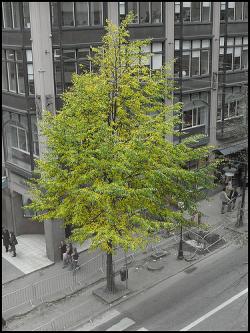Introduction
Living Lightly is a philosophy that recognizes that we humans have reached a pivotal point where we have an opportunity to choose a positive, more promising course for the future of our species. That course must be in balance and in partnership with nature, and it must recognize the importance of rebuilding and maintaining a healthy ecosphere on the only planet to which we are perfectly adapted. Our society, our livelihoods and our very lives depend on it.
By Living Lightly, we choose to be active participants in finding and sharing solutions to today and tomorrow’s environmental, social and economic challenges, without being judgmental or sanctimonious. By Living Lightly, we choose to adopt a positive, generous approach to seeking solutions and to sharing them with others, and to do so with humility.
Living Lightly embraces the fact that we have a moral and practical obligation to reduce our personal impact on the planet, to consume fewer resources, to generate less waste and to achieve a better balance between our needs and those of the natural world. But more than that, Living Lightly is a proclamation that we can actually achieve a better quality of life in the process. Living Lightly is a way to attain richer, more meaningful lives. It’s a means to build stronger and healthier communities and economies. It’s a blueprint for improving security and achieving greater resilience. We can achieve these goals by more equitably sharing the abundance of Earth’s natural resources as well as the fruits of human ingenuity and imagination.
Although there is certainly an element of material sacrifice implied in Living Lightly â€â€living well with fewer resources  anyone who chooses to Live Lightly does so voluntarily, with the goal of achieving a high quality of life and a healthier lifestyle, mentally, physically and socially. As humans sharing the only planet that is perfectly order ativan online usa suited to sustain us  or to which we are perfectly adapted  we face a series of major environmental challenges that imply significant social and economic consequences. How will we respond? Will we deny that these problems merit urgent attention, until it is too late? Will we agree that we have serious problems, but wait for somebody else to solve them? Or, will we choose to act collectively and decisively, recognizing that this is the cheapest, most effective and fairest way to promote our interests and our families’?
We are at a point as a species and a global community where we can no longer afford to wait.
We must act. History tells us that when individuals pool their resources and intelligence, they usually end up with a better result than if they acted narrowly as individuals or in small groups. We are at a critical moment where we need both a rallying cry for collective action and a psychological shift in how we act.
We need to hear a message that is positive and inspiring. We need to believe that a shift to a more sustainable lifestyle and economy will be both challenging and deeply rewarding. We need to believe that the world we are aiming for will be a better place  and better for everyone, not just a select few.
We need to believe that this is not yet another utopian quest, by looking at examples of people who have already taken action, albeit on a small scale and often in isolation.
We need to see and feel that others are joining us in a mass movement, both because it is right and it feels good. What we need is a major community project – a projet de societé, as it is called in French  on a national and then a global scale.


